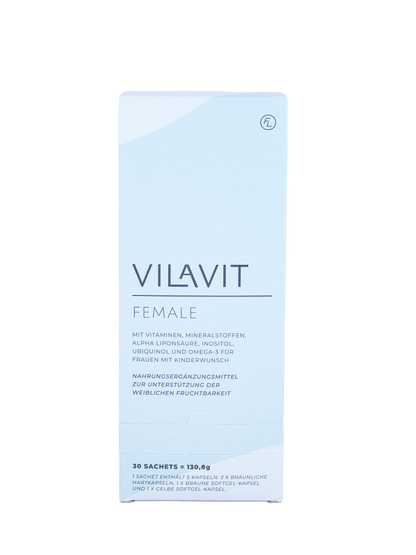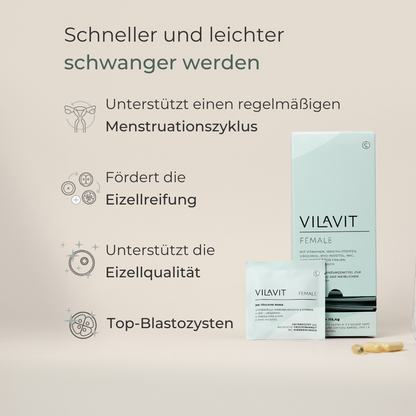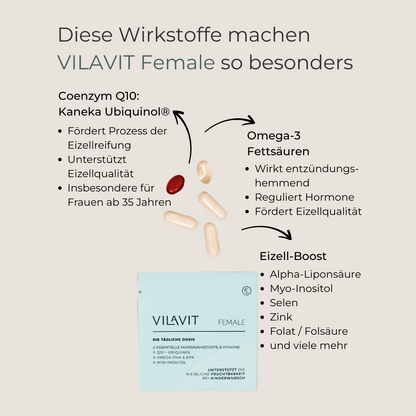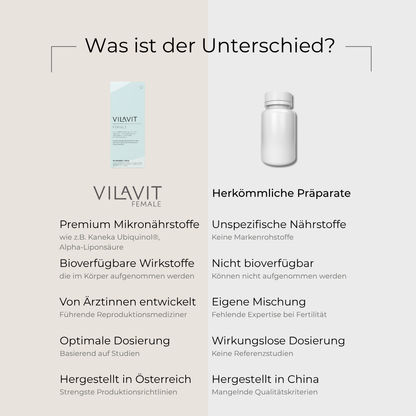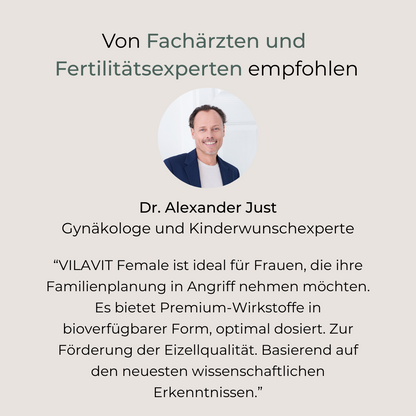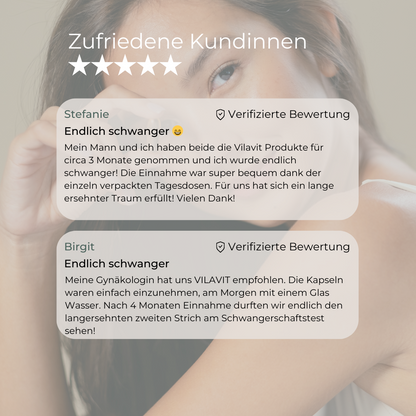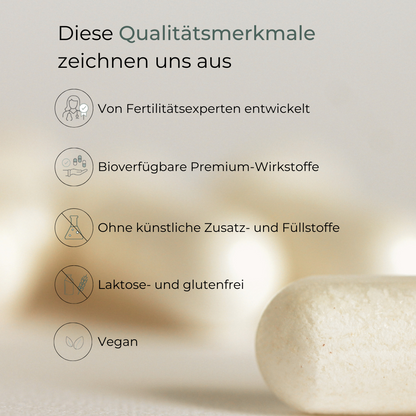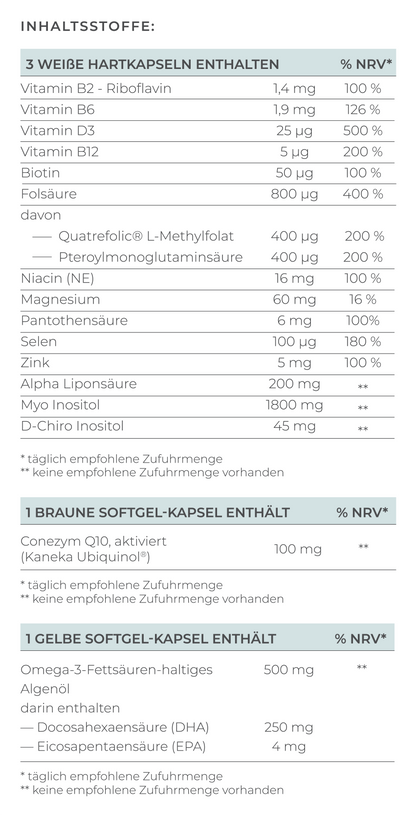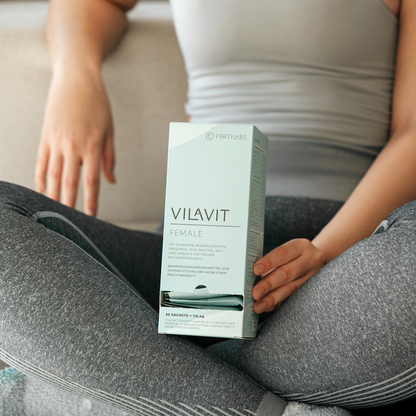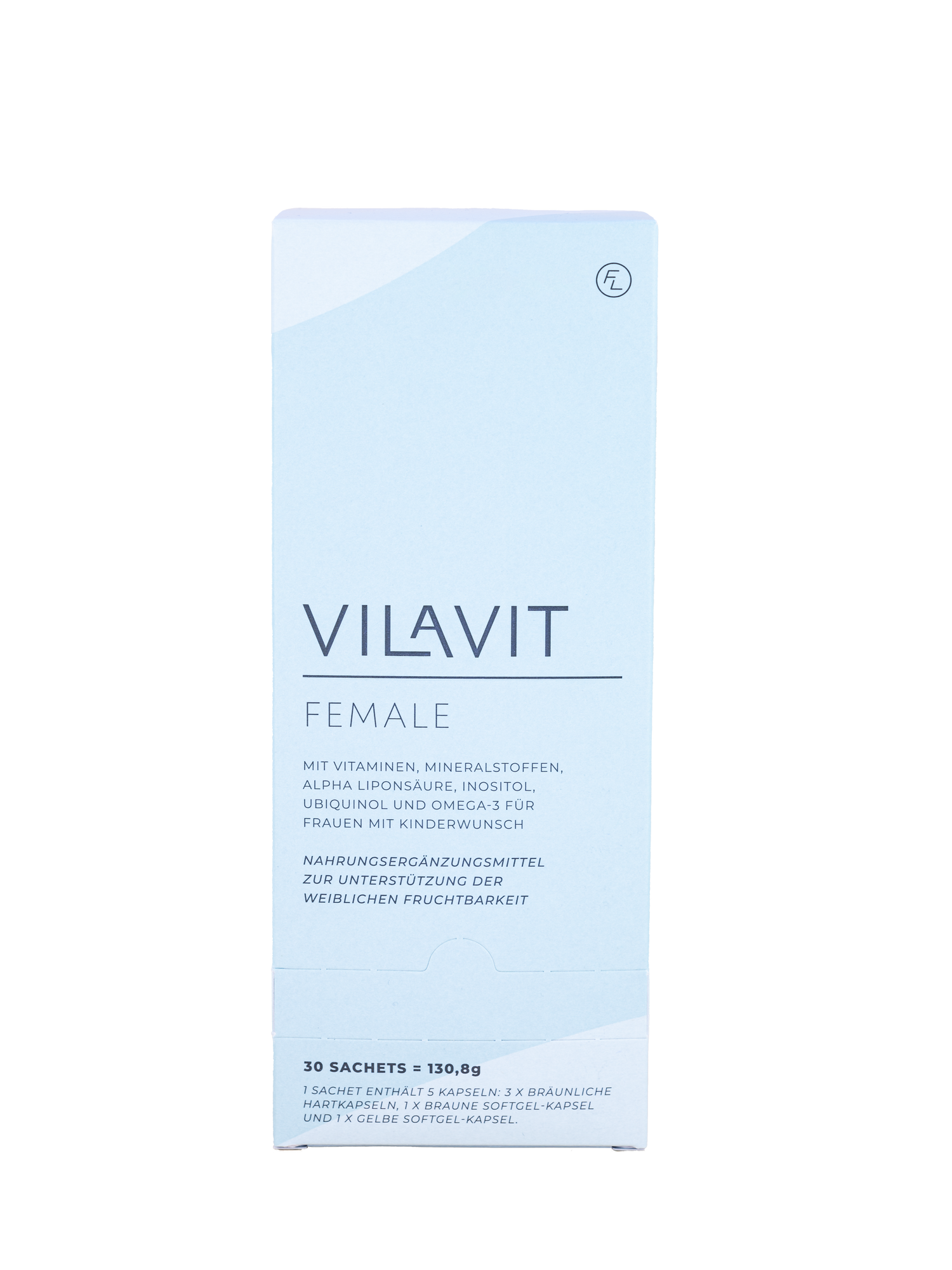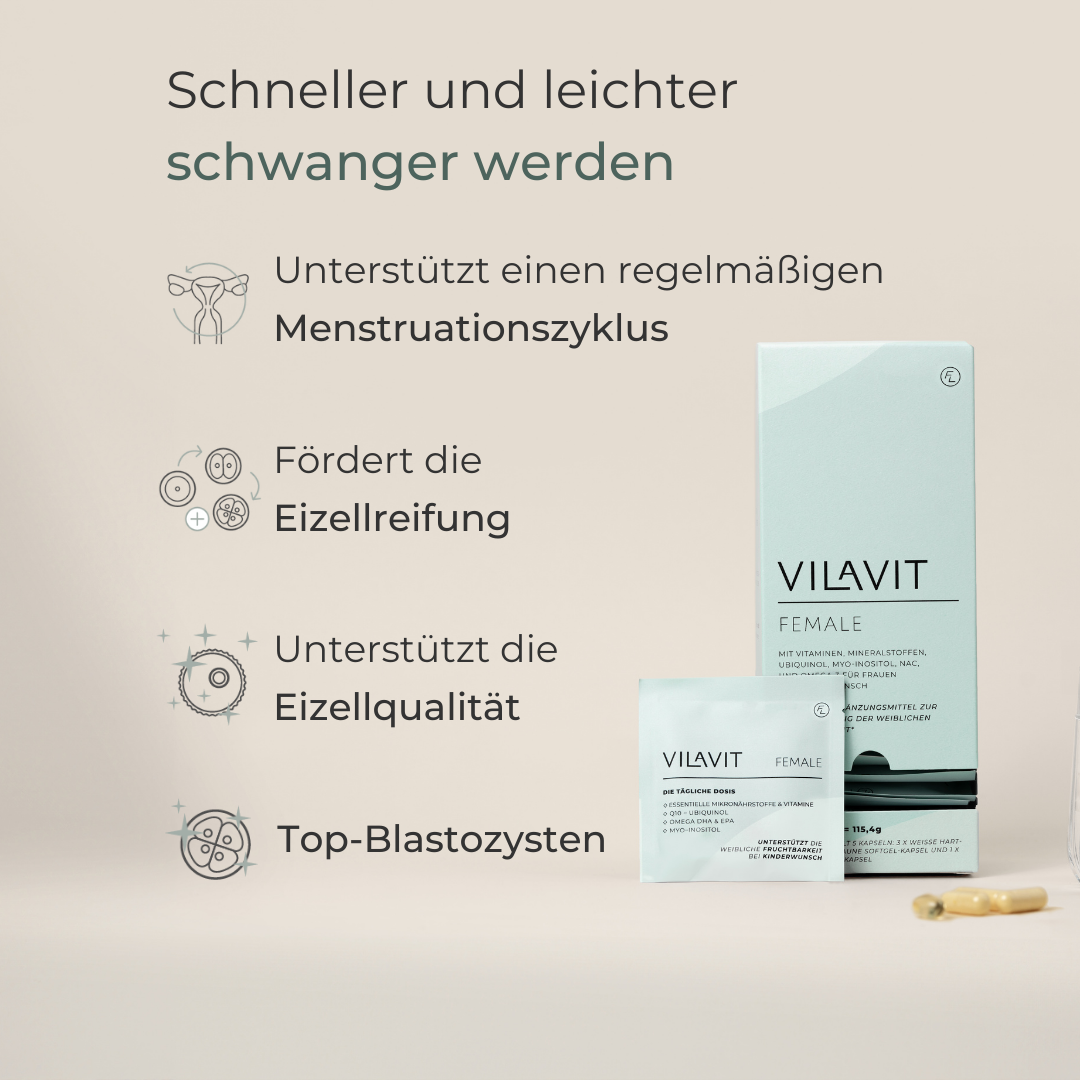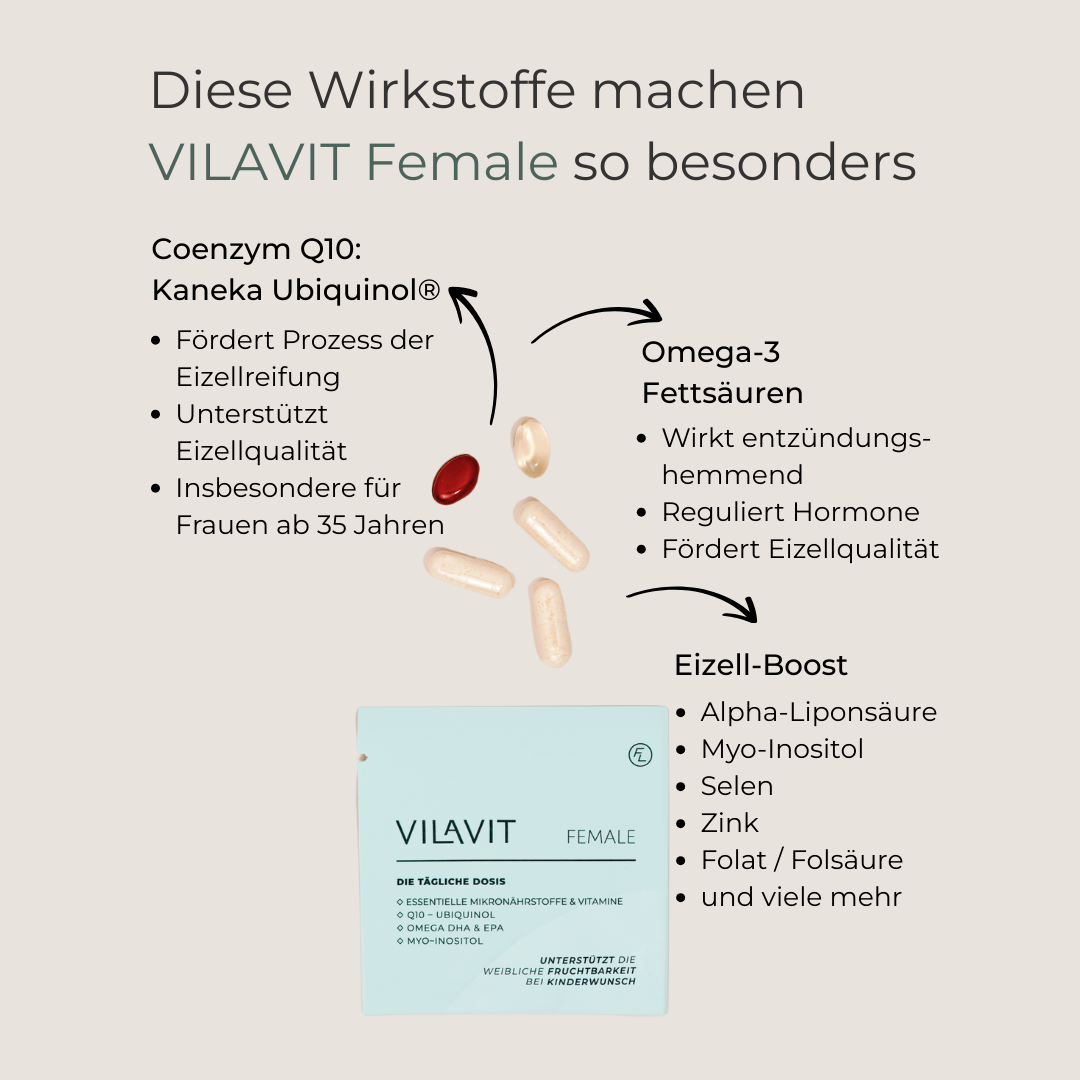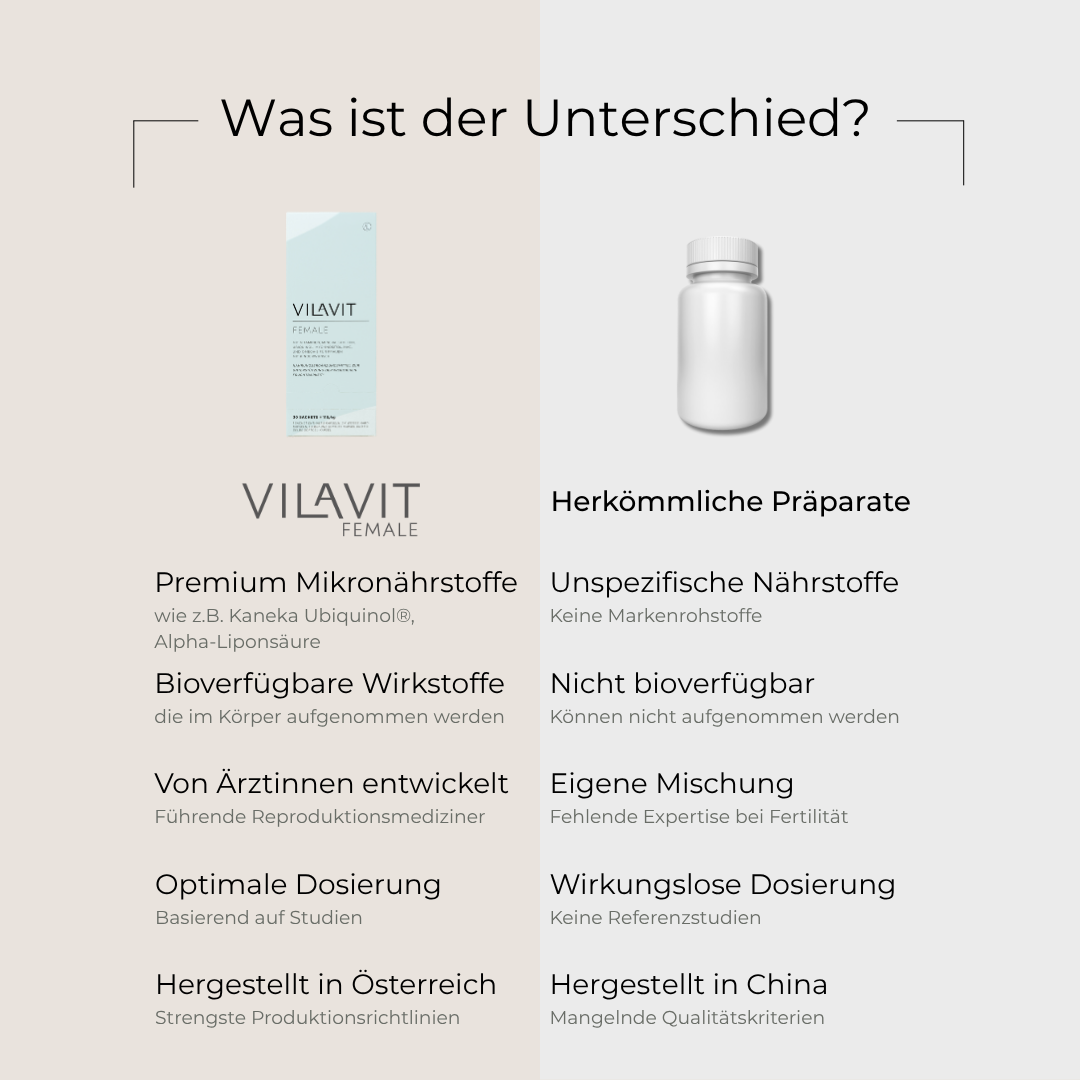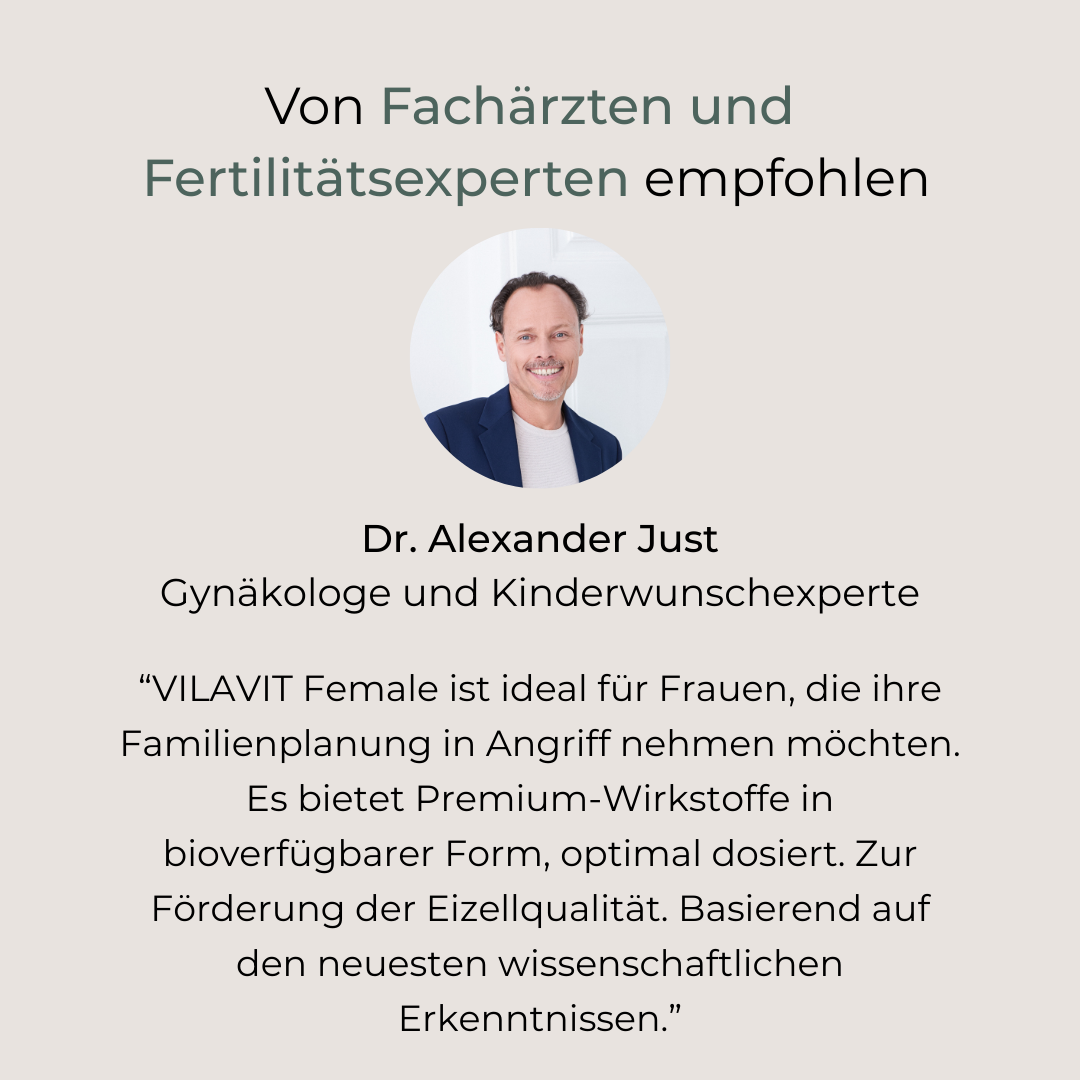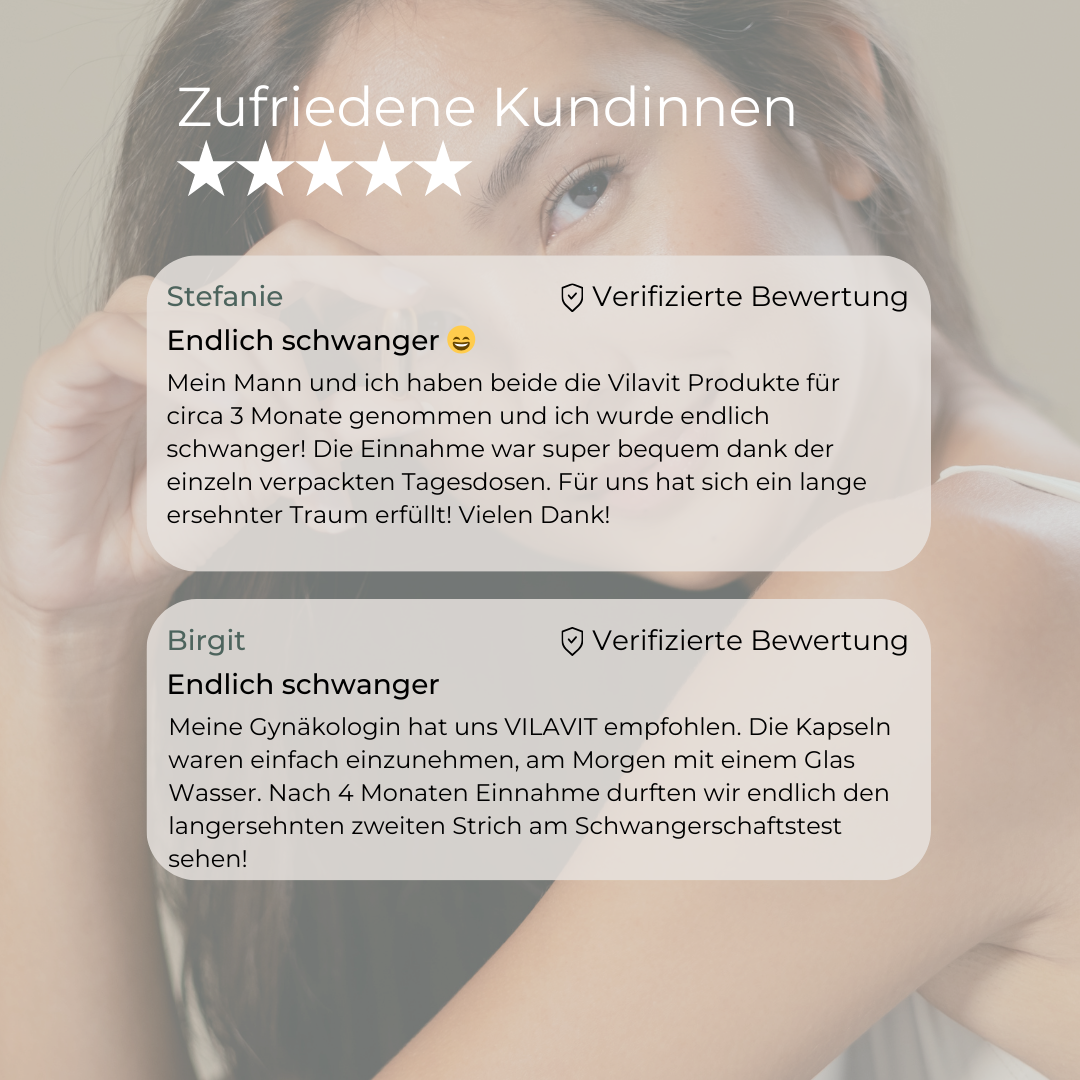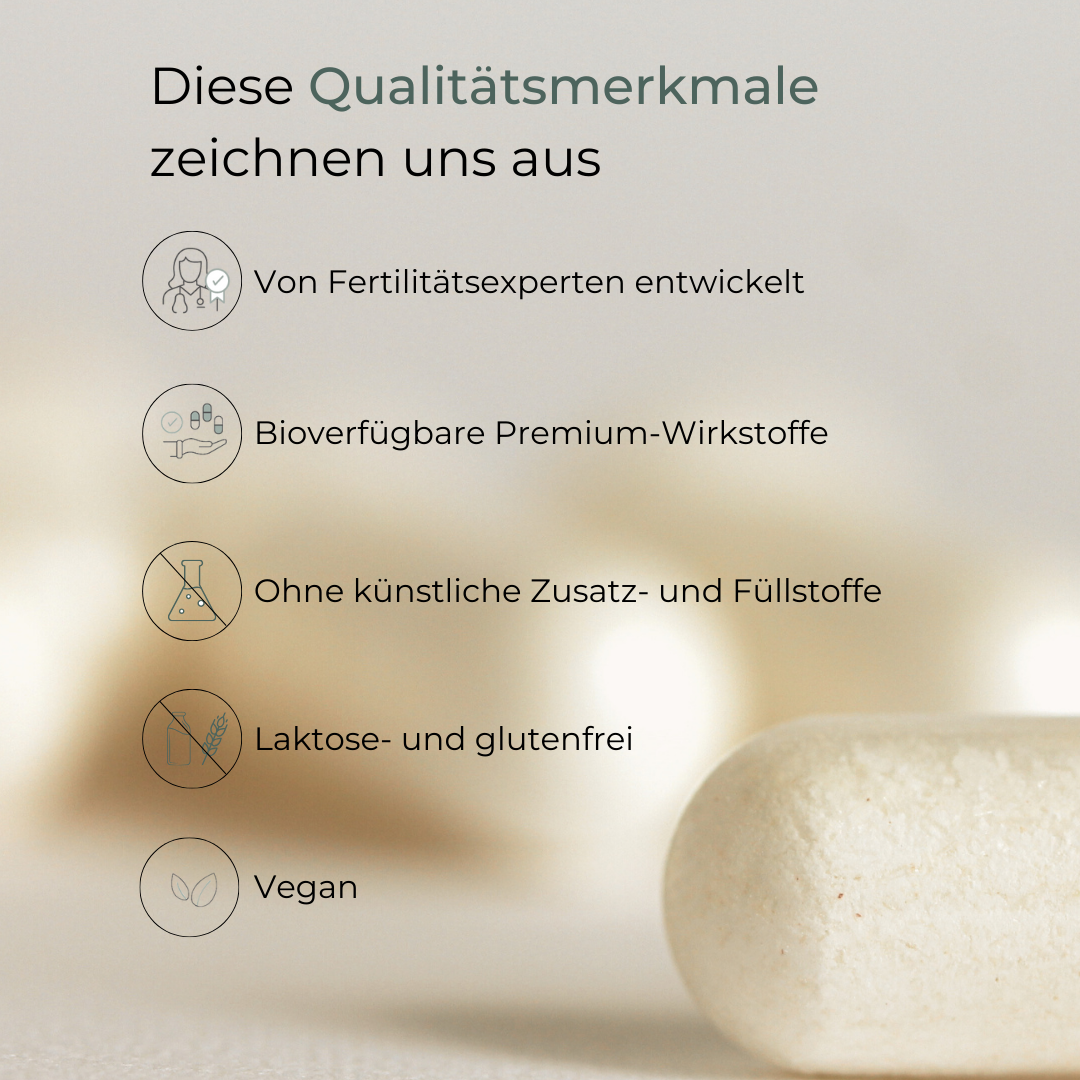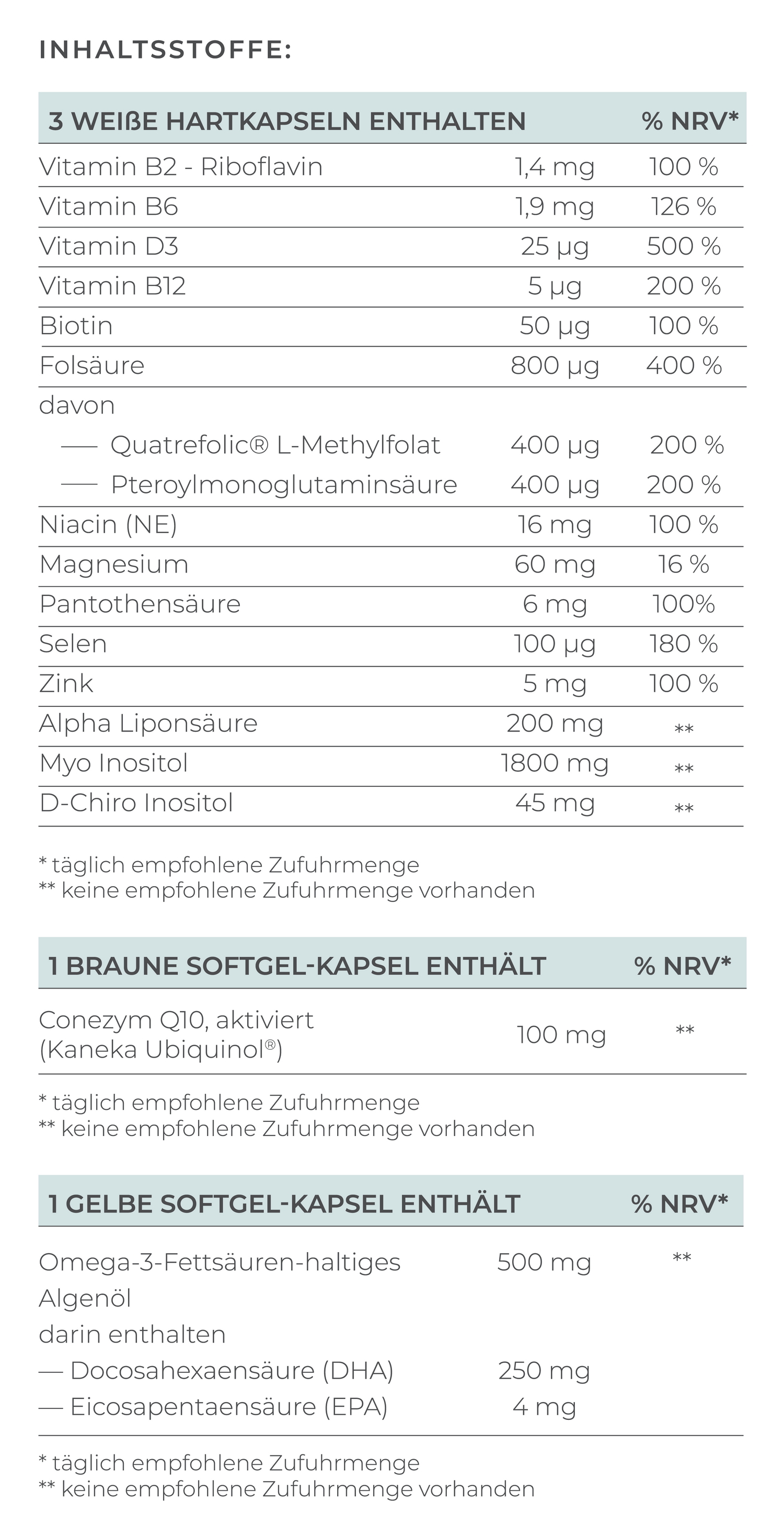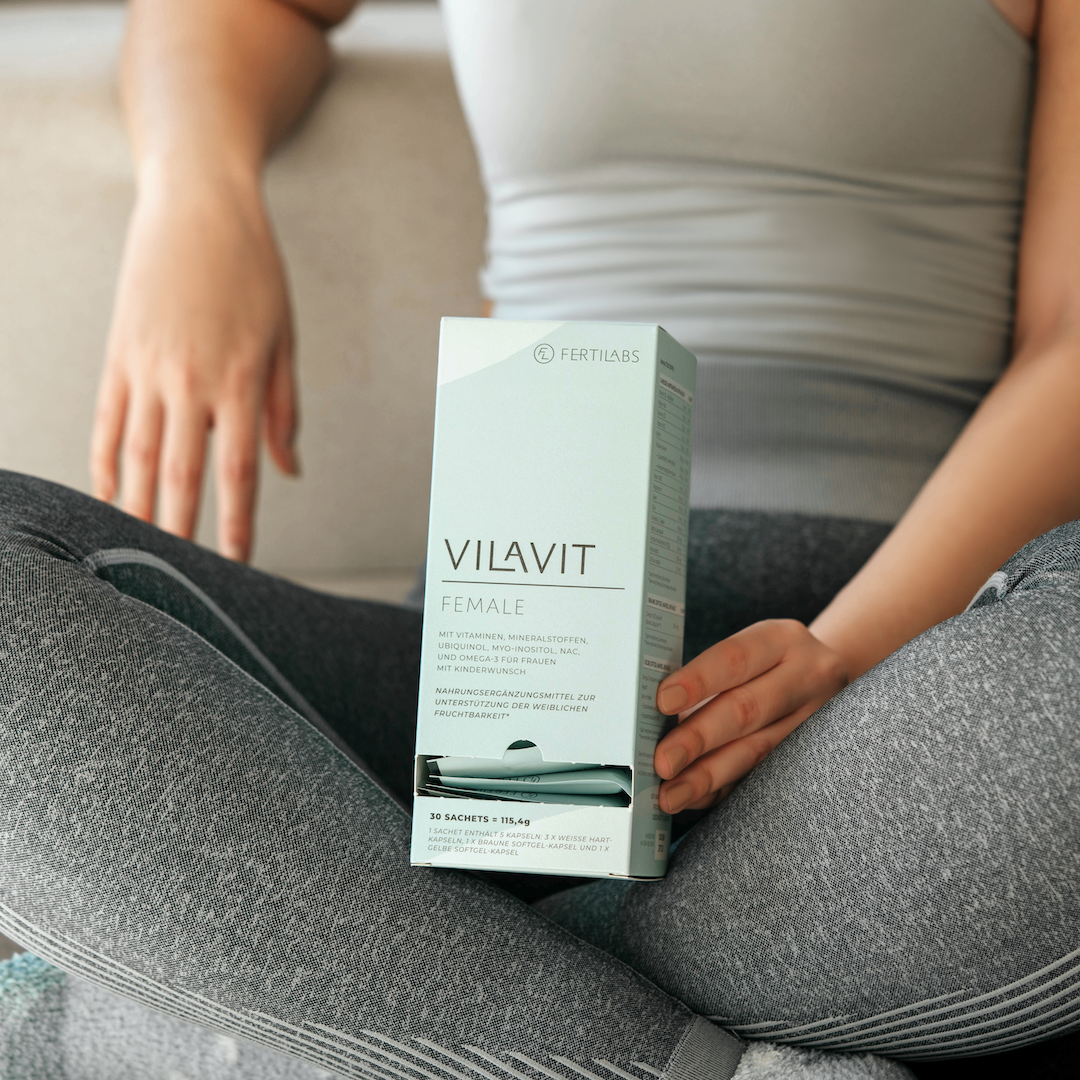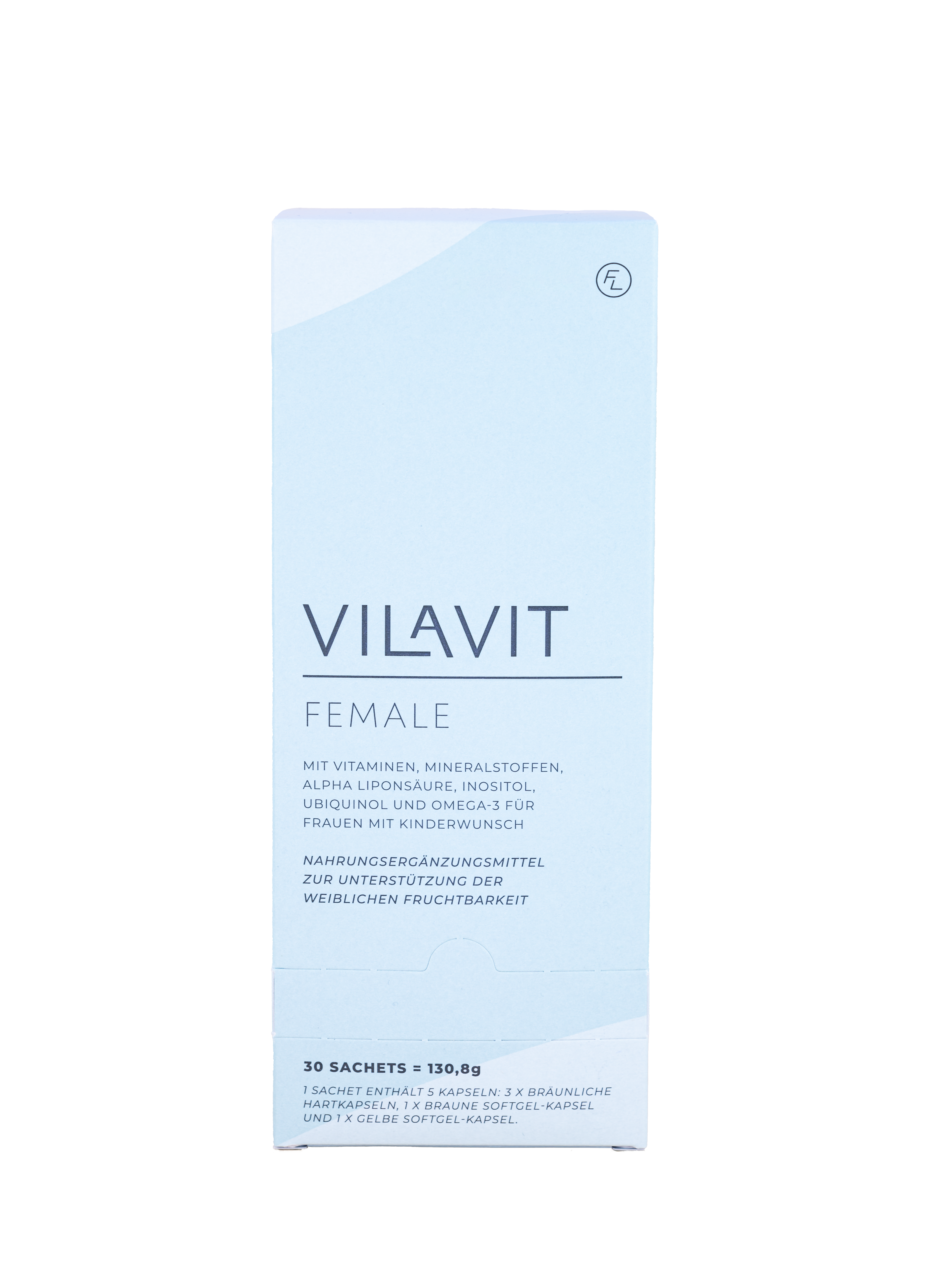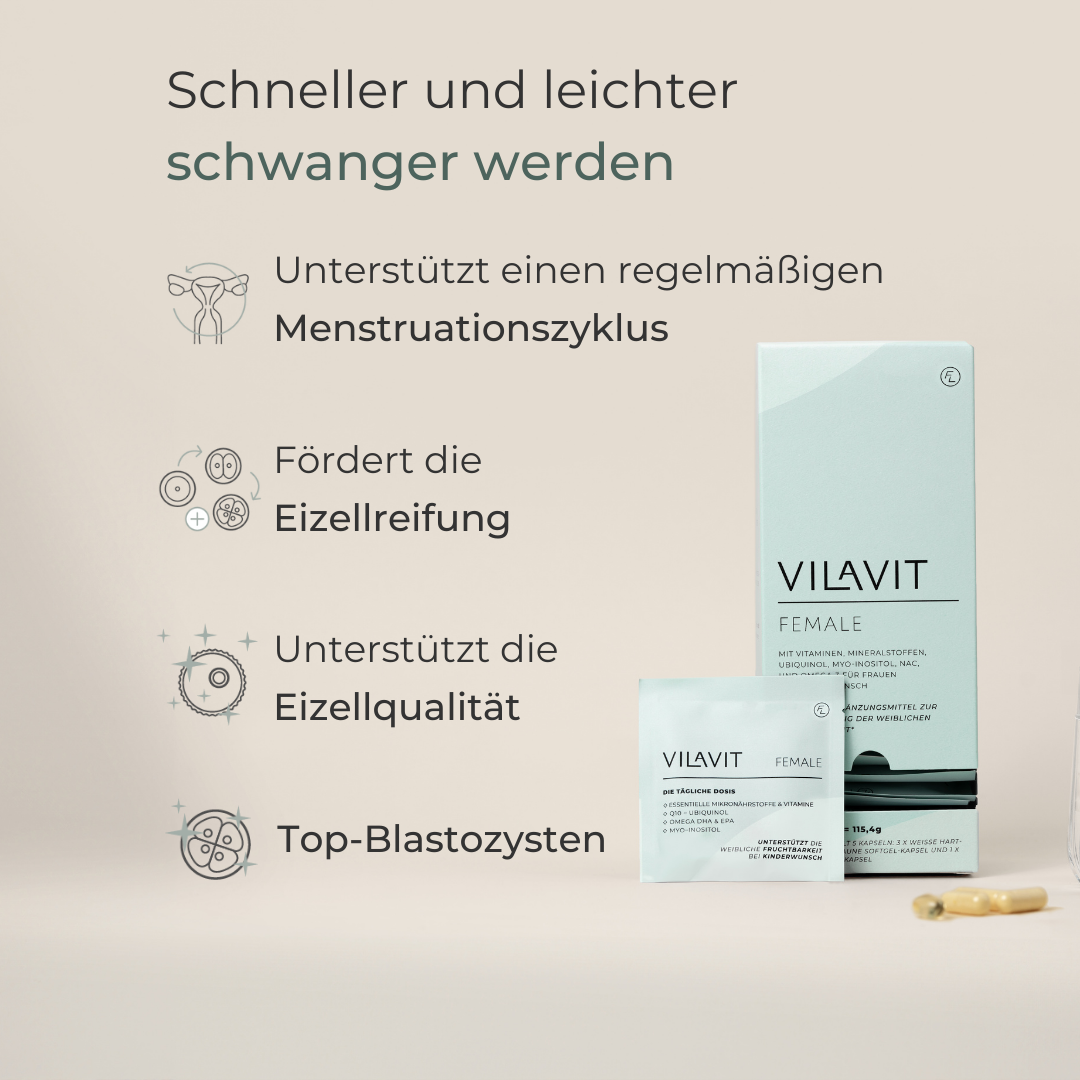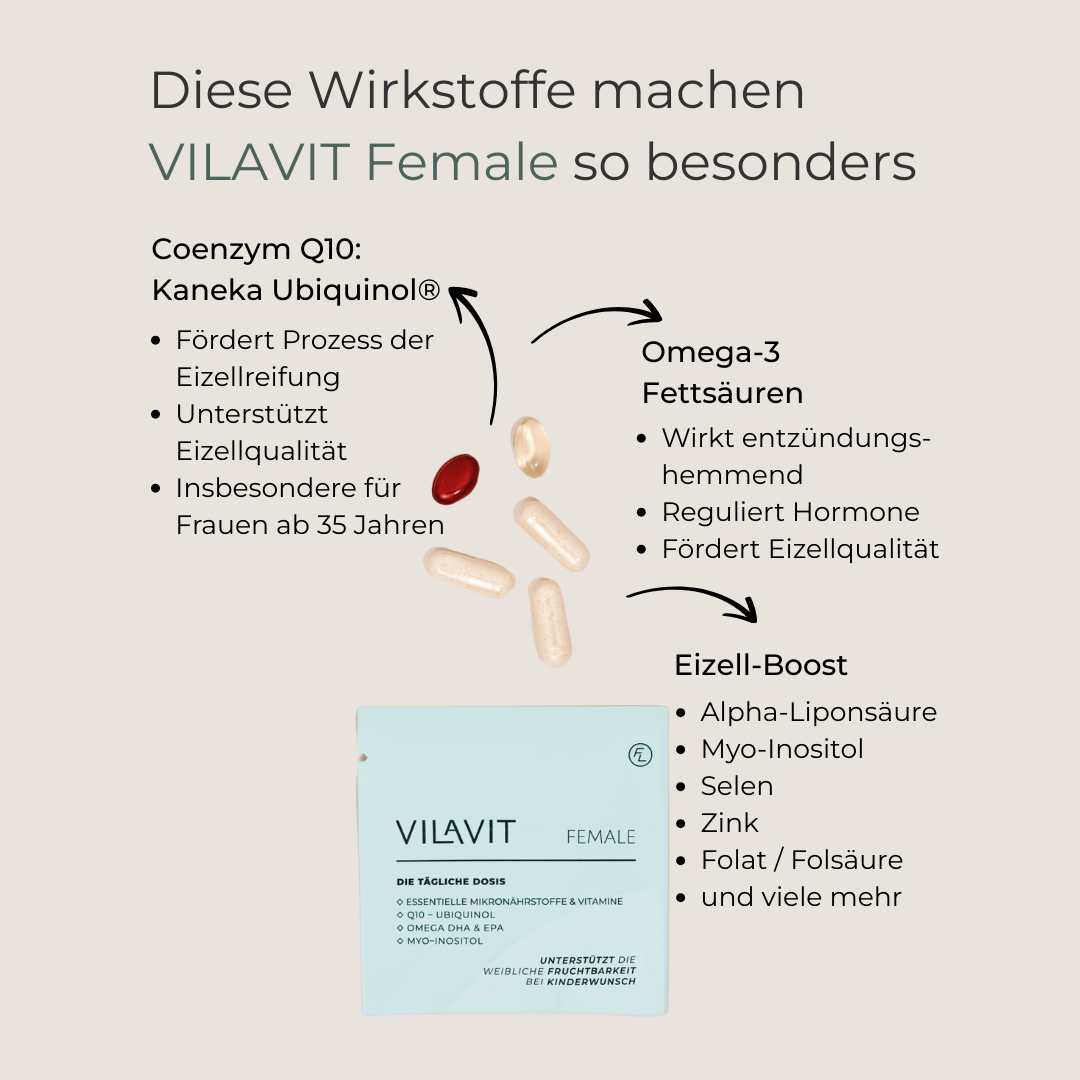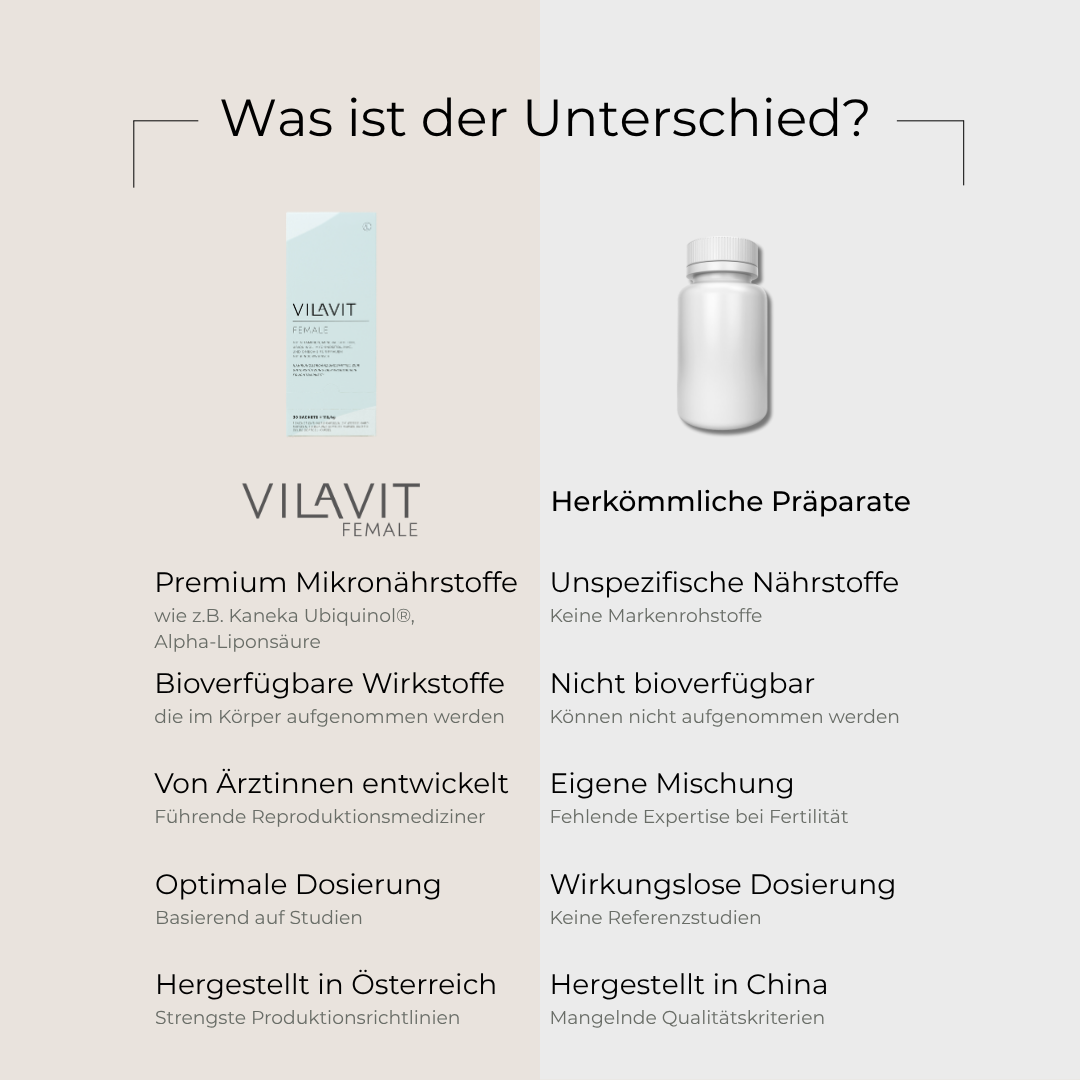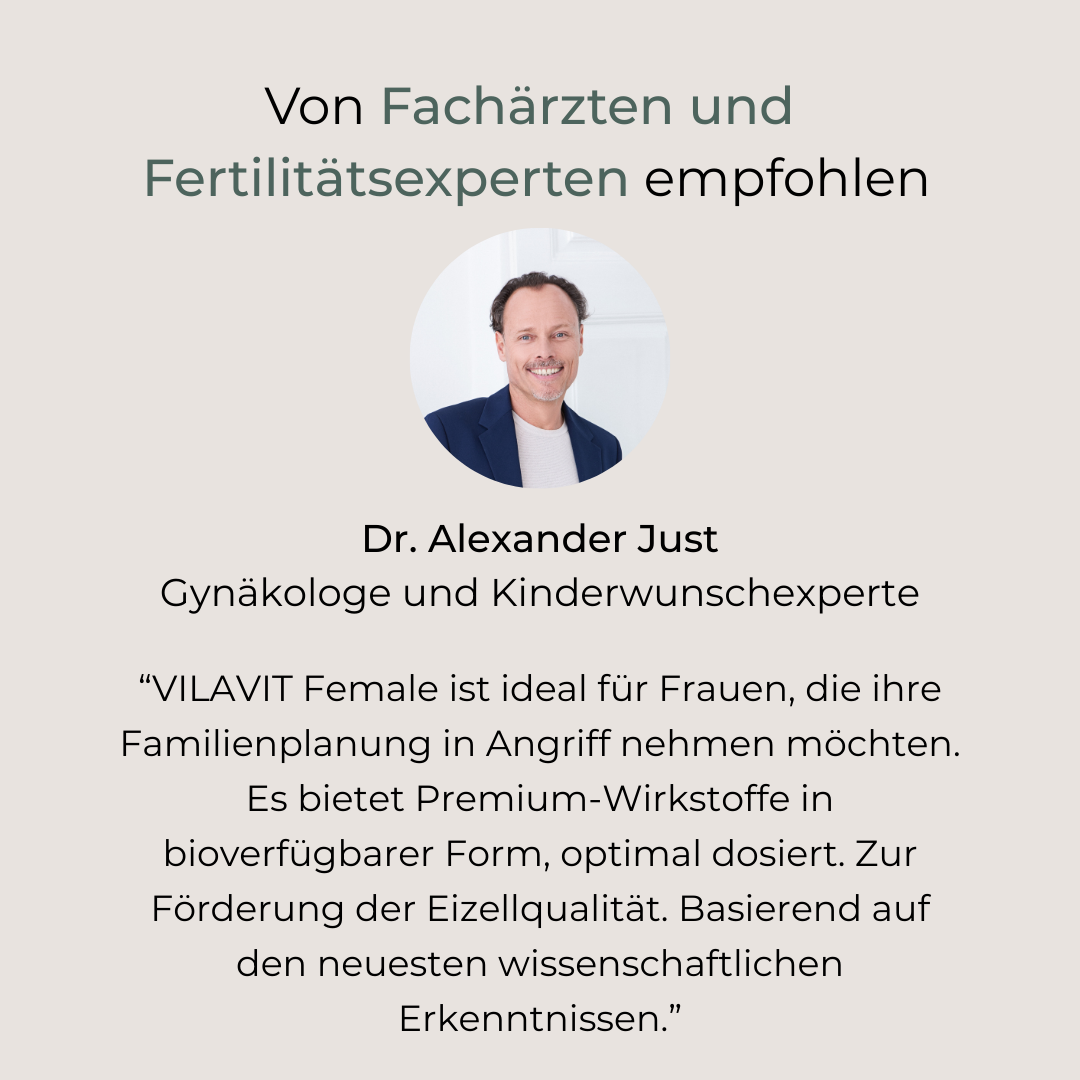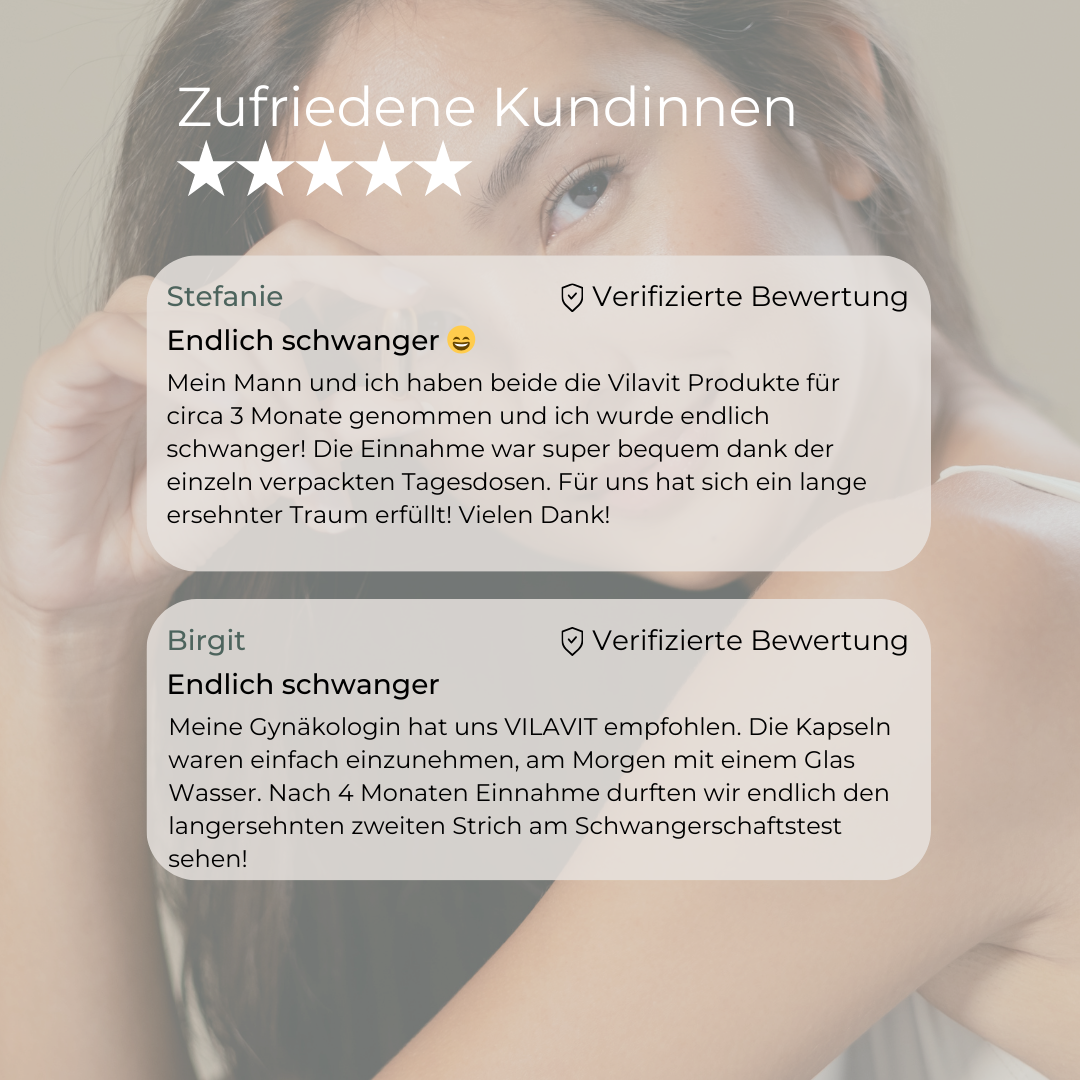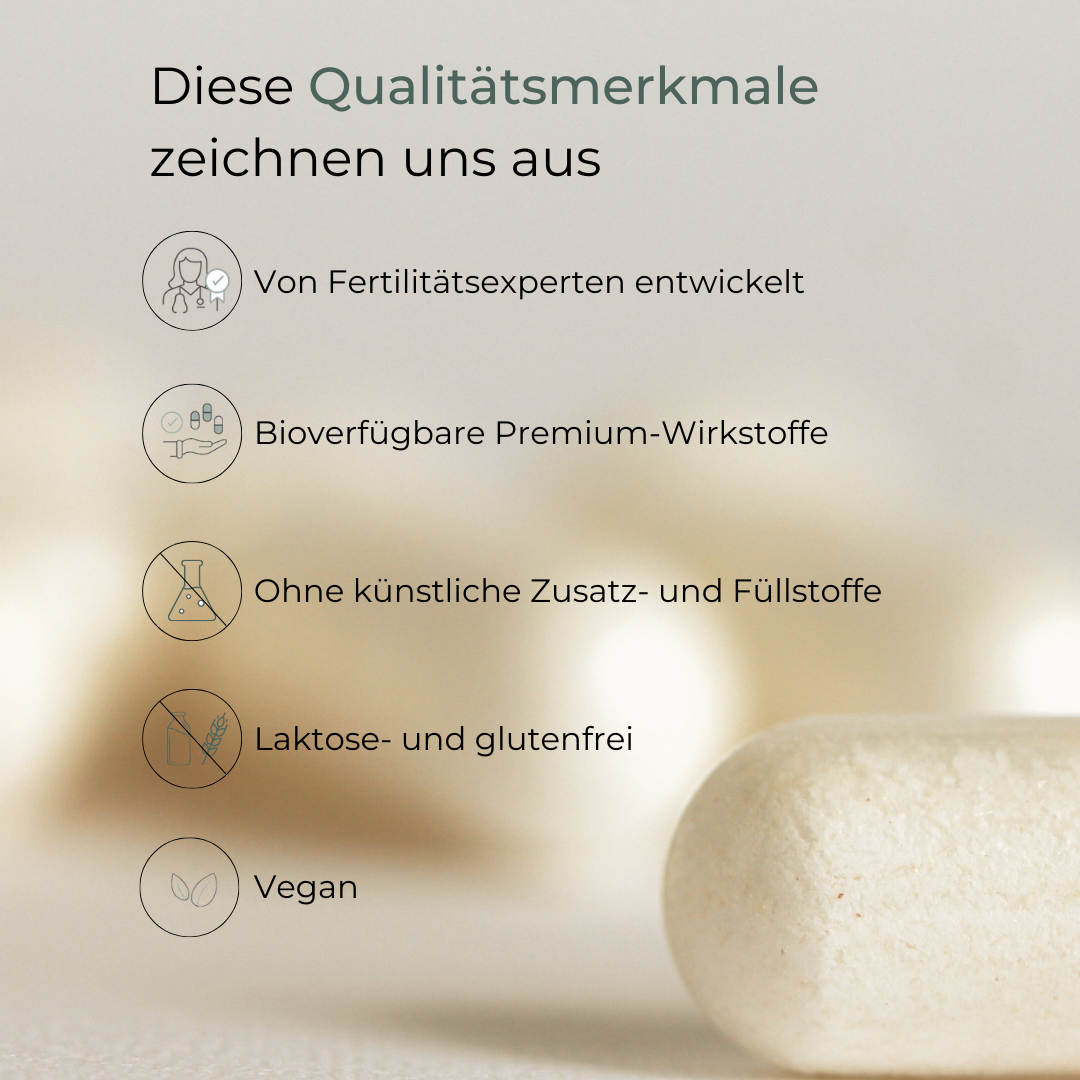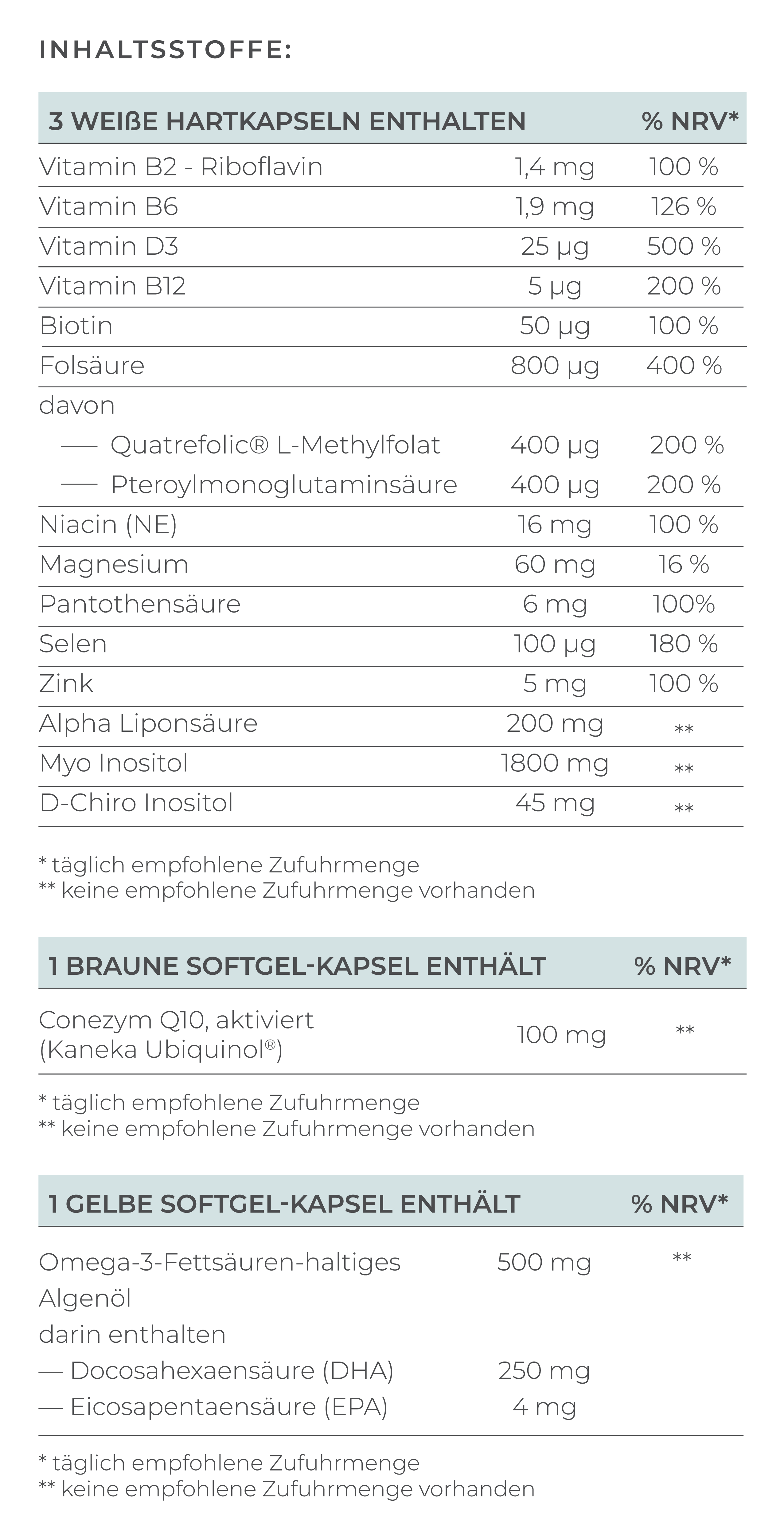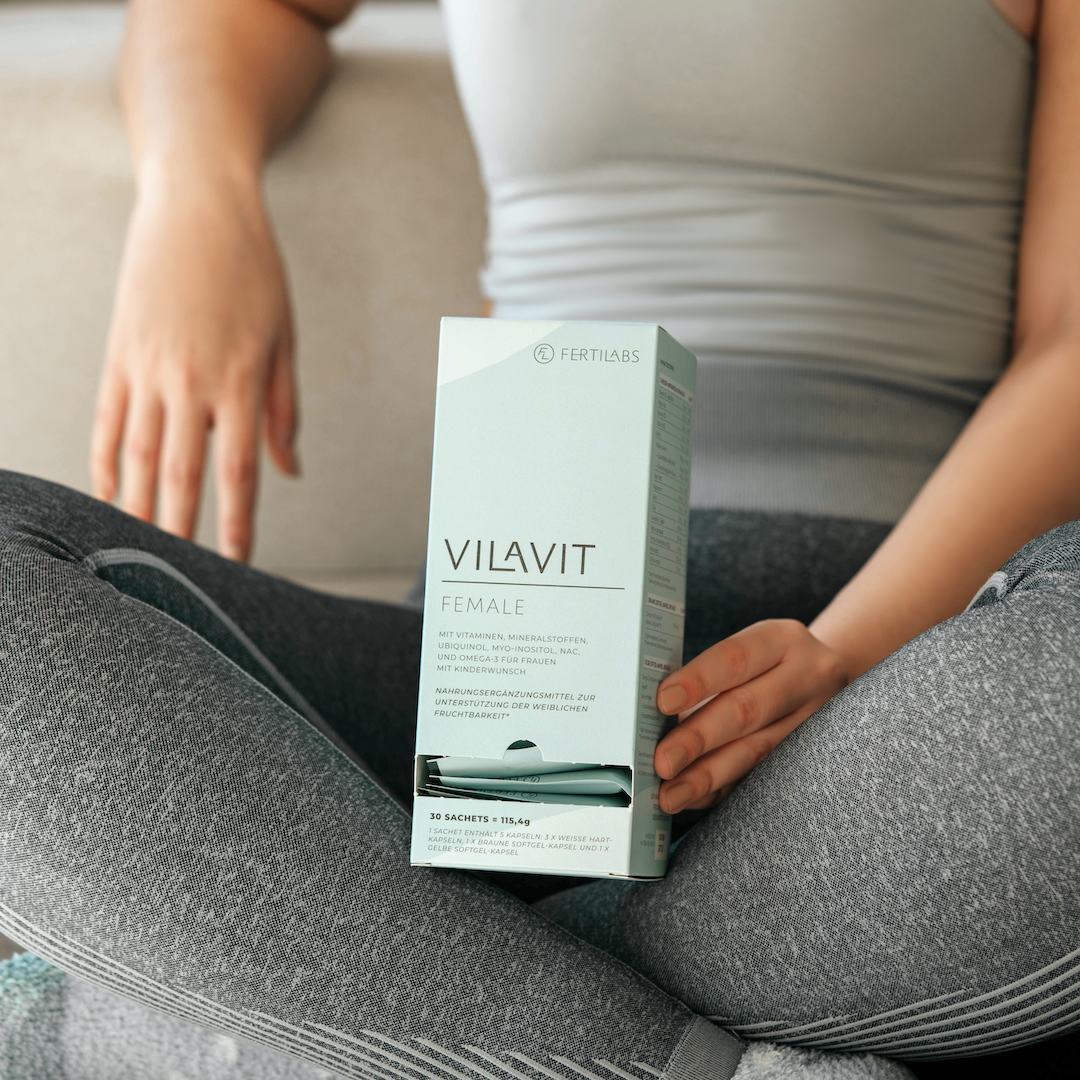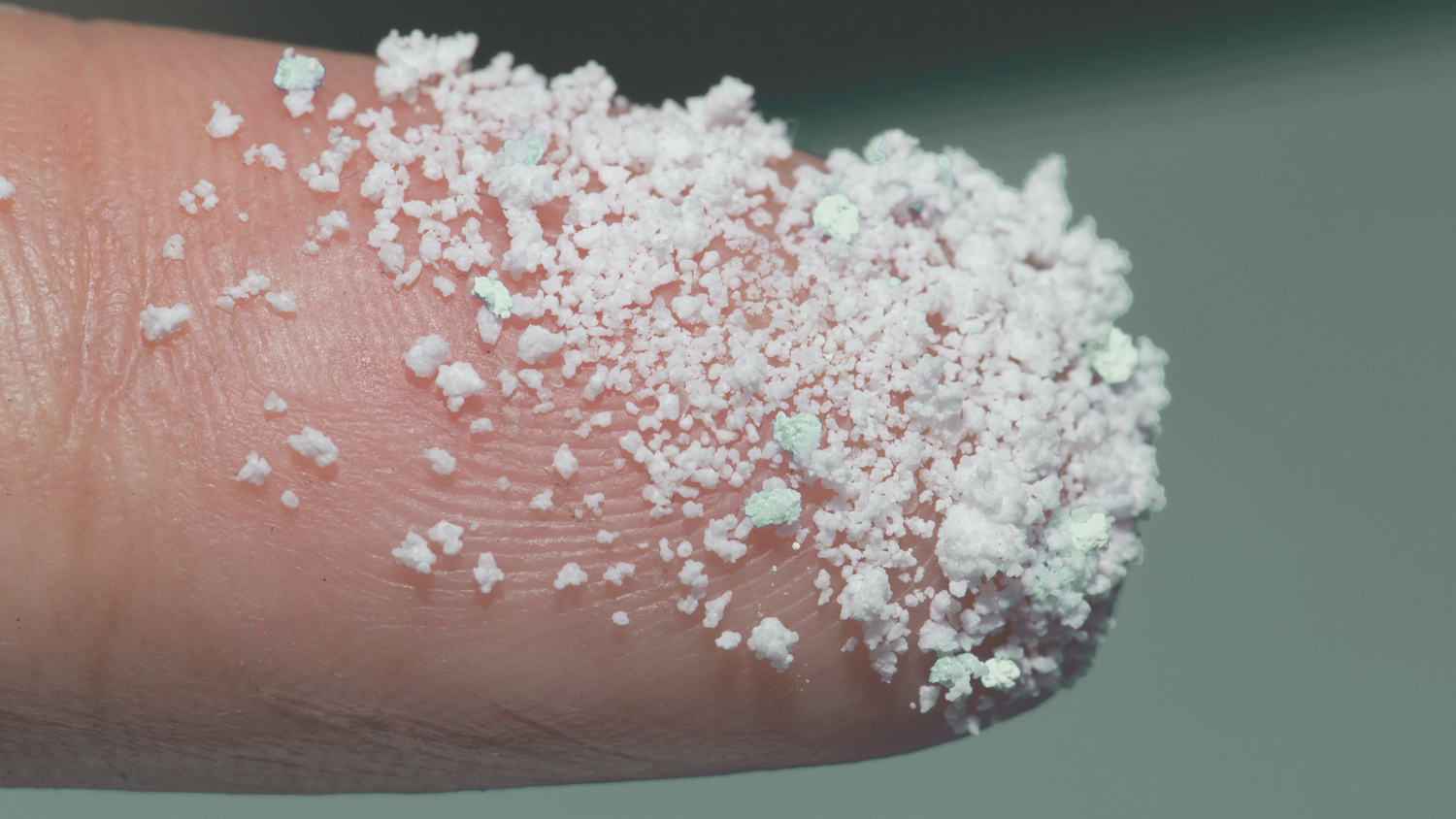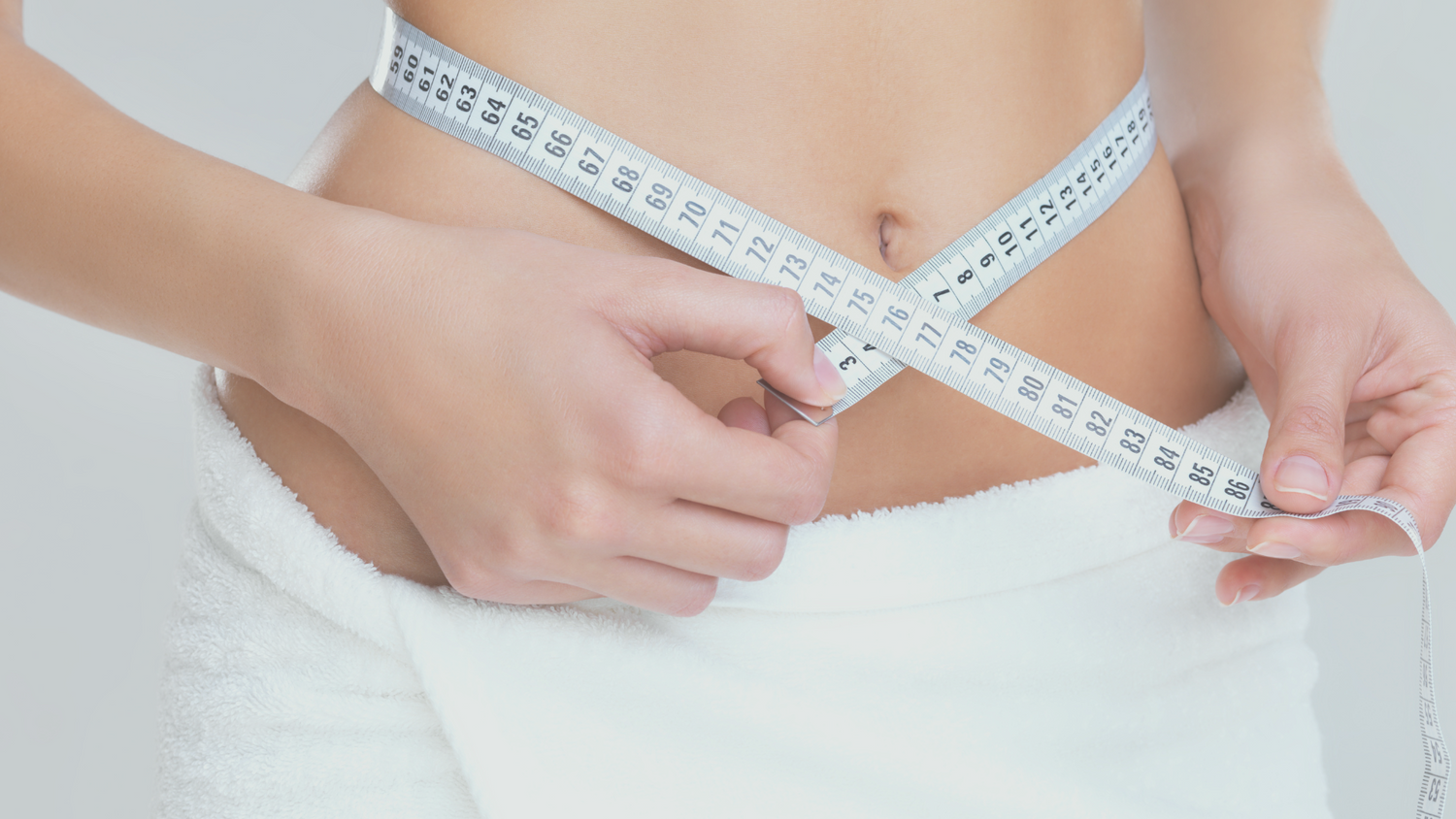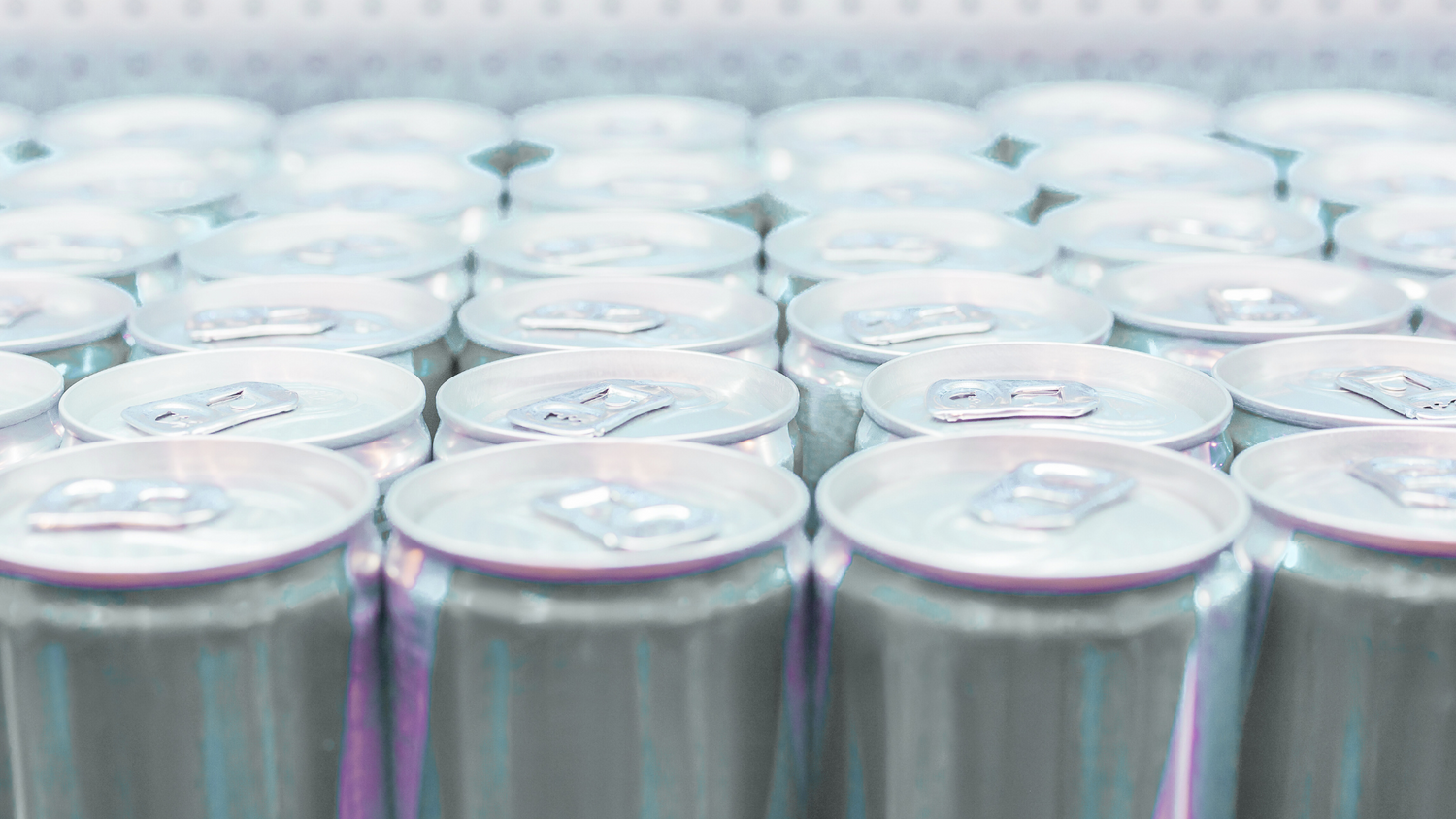The diagnosis of early menopause can be devastating. However, you don't have to give up on your desire to have children, as there are numerous ways to improve your fertility despite this. You can also find tips here on how to reduce the chances of going through the menopause early.
The most important facts about early menopause and fertility
-
The term “early menopause” often refers to early menopause, where there are no menstrual periods at all, or premature ovarian insufficiency (POI), where menstruation and spontaneous pregnancy are still possible.
-
Both problems can have many causes, but in some patients these remain unclear.
-
The risk of early menopause can be reduced through lifestyle modification.
-
Thanks to assisted reproductive medicine and new procedures, women in the early menopause can also become pregnant.
What is the early menopause?
The term “early menopause” is often used to describe two different problems that are closely related:
-
Early menopause: The early menopause is more or less the same as the “normal” menopause, except that it occurs earlier than would normally be the case. The term early menopause is generally used when the menopause occurs before the age of 40. Women in (early) menopause no longer have a menstrual cycle, which is why a natural pregnancy is unfortunately no longer possible (Okeke, T., et al., 2013).
-
Premature ovarian insufficiency (POI): Premature ovarian insufficiency (POI) also occurs before the age of 40 but compared to early menopause, hormonal activity or menstruation is still possible. Put simply, eggs no longer mature regularly in the ovaries, although this is still possible in some cases. Women with POI can therefore also become pregnant naturally - but the probability is significantly lower than for other women. Around 1% of women under the age of 40 suffer from POI (Hernández-Angeles, C., et al., 2016).
How is the early menopause diagnosed?
Women in the early menopause are diagnosed using hormone measurements. Increased FSH and reduced estradiol levels are considered indicators. In addition, symptoms such as hot flushes and sleep disorders usually occur.
Premature ovarian insufficiency (POI) is diagnosed by an increased FSH level and a disrupted menstrual cycle. In addition, affected women often suffer from hot flushes, night sweats, hair loss or dry skin.
What are the causes of the early menopause or POI?
Early menopause and POI can have many different causes. It is also important to note that in some women no specific causes can be found. Nevertheless, here are the most common causes:
-
Genetic causes: Chromosomal defects such as Turner syndrome can increase the risk of early menopause. In addition, early menopause and POI in particular tend to run in families. A study from 2024 concluded that 14% of women with POI have a family history of POI (Dave A., et al., 2024).
-
Autoimmune diseases: Autoimmune diseases can also contribute directly or indirectly to premature ovarian failure or early menopause (Okeke, T. et al., 2013 and Dave A., et al., 2024).
-
Iatrogenic factors: Iatrogenic factors are damage that has been caused by medical treatment. In this case, these include radiation and chemotherapy (Dave A., et al., 2024).
-
Environmental factors: In an Indian study, it was shown that women with low education and low income had a significantly higher risk of early menopause (Kundu, S., et al., 2024). In addition, exposure to toxins and chemicals increases the risk of environmental factors such as certain pesticides or tobacco. Some infections such as mumps can also lead to POI in rare cases (Dave A., et al., 2024).
-
Lifestyle factors: A British study found that in addition to tobacco consumption (i.e. smoking), alcohol and lack of exercise also increase the risk of early menopause (Peycheva, D., et al, 2022).
How can I reduce my risk of early menopause?
Some factors can help delay the onset of menopause. However, some women still go through the menopause early - especially if one of the factors mentioned above, such as genetic or autoimmune causes, is responsible. Nevertheless, we recommend that you:
-
Quit smoking or avoid passive smoking: Tobacco can damage ovarian function (the function of the ovaries), which is one of the reasons why POI is favored.
-
Stick to a healthy diet: A diet with few processed foods and plenty of fresh fruit and vegetables as well as sufficient micronutrients can regulate and stabilize hormone activity. If you want to provide your body with additional support, high-quality dietary supplements such as VILAVIT Female can be an ideal solution for you.
-
Avoid being severely overweight or underweight: Both can have a negative impact on hormones and menstruation.
-
Avoid environmental toxins such as heavy metals, but also certain cosmetic ingredients (such as parabens or phthalates). Although there is usually only a suspicion of ovarian toxicity with cosmetic ingredients in particular, you could also avoid this potential risk.
What can I do if I have an early menopause and want to have children?
Regardless of whether you want to have children or not, hormone replacement therapy (HRT) is an important treatment option for women with POI or early menopause. HRT helps you to alleviate the symptoms of early menopause such as hot flushes, maintain bone density and reduce the risk of cardiovascular disease and dementia (Dave, A., et al., 2024).
Women with POI in particular still have a chance of spontaneous pregnancy, which is why these women should also use contraception if they do not currently wish to become pregnant.
Egg freezing could offer hope for women who wish to conceive and have POI. If the eggs are frozen at an early stage, they can be reimplanted later with IVF and lead to a pregnancy (Dave, A., et al., 2024).
Regardless of whether you suffer from POI or early menopause, egg donation could also be an option for you (Okeke, T., et al., 2013). This involves fertilizing an egg from another woman (i.e. the donor) with a sperm from your partner (or donated sperm if necessary) using IVF and then implanting it in your uterus. The advantage of this method is that the quality and number of your own eggs do not influence the chances of pregnancy.
A promising but not yet sufficiently researched method is plasma therapy, PRP (platelet rich plasma) for short, which is already being used in areas such as plastic surgery. Some studies also show promising results in women with reduced fertility due to POI, menopause or low ovarian reserve (Sharara, F. I., et al., 2021). However, to our knowledge, PRP is not yet offered for fertility treatments outside of trials.
Ultimately, we (and some scientists) can recommend therapy or other forms of mental support such as support groups. Early menopause can lead to many questions, worries and anxieties that are completely normal and in no way embarrassing. So to support your wellbeing, we can only recommend such support services.
Frequently asked questions about the early menopause
What is early menopause?
The early menopause is the premature transition to the “normal” menopause, which leads to the cessation of menstrual cycles. Premature ovarian insufficiency (POI) is a dysfunction of the ovaries in which individual ovulations and hormonal activity can still occur. Both of these phenomena usually occur around or just under the age of 40.
What is the difference between early menopause and premature ovarian insufficiency (POI)?
The early menopause is more or less the “normal” menopause that every woman goes through - but it occurs too early. During the menopause, the activity of the hormones responsible for the menstrual cycle slowly declines. POI, on the other hand, is a dysfunction of the ovaries that not every woman suffers. A period can still occur, albeit usually irregularly. This means that hormonal activity does not cease completely as with the (early) menopause.
What symptoms can indicate the early menopause?
Early menopause can be particularly noticeable through hot flushes, sleep disorders and a lack of periods. POI can also lead to a very irregular cycle.
How is the diagnosis made?
The diagnosis is usually made by a combination of blood tests and the recording of symptoms by a doctor.
What are the main causes of early menopause?
The early menopause is often triggered by genetic factors, autoimmune diseases, environmental factors such as exposure to toxins, lifestyle factors such as lack of exercise and iatrogenic factors such as chemotherapy or radiotherapy.
Can I get pregnant despite an early menopause?
If you are in the early menopause, you will unfortunately no longer be able to get pregnant naturally, but pregnancy is still possible through egg donation, egg freezing or, in rare cases, IVF. If you suffer from POI, you can still get pregnant naturally. Although the chances are lower than for other women, you should not do without contraception. However, assisted reproduction methods such as IVF can also be helpful here.
Should I see a doctor if I suspect early menopause?
Yes, absolutely! A consultation and examination with a doctor is the only way to get a reliable diagnosis. There you can also get advice on the subject of the desire to have children. In addition, the chances of pregnancy are better if you receive a diagnosis early and can take appropriate measures.




